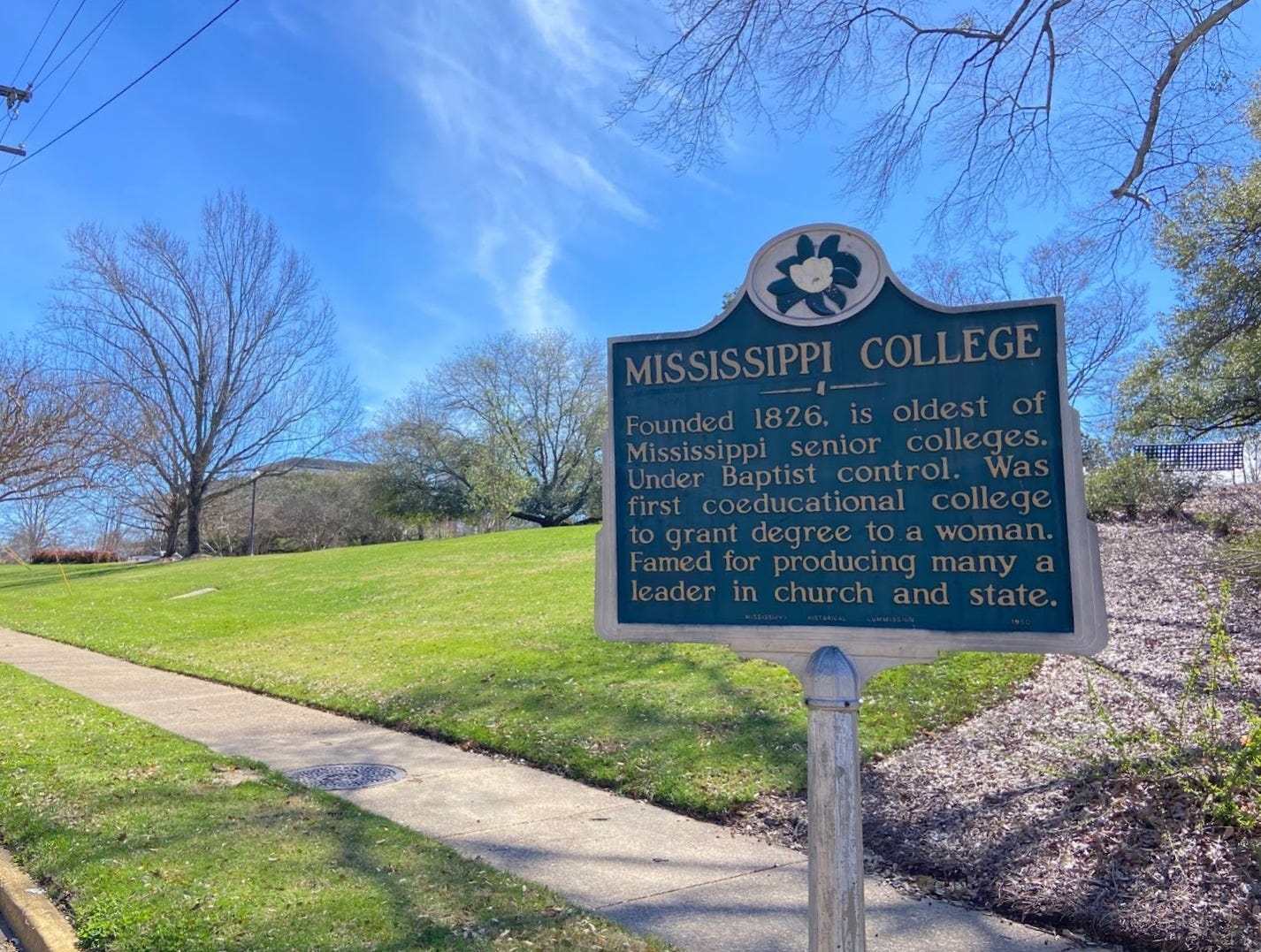New University Name Distinguishes, Hearkens Back to Historical Roots
Exploring the synthesis & significance of Mississippi College's new name.
In November 2024, the Board of Trustees announced an “institutional name change from Mississippi College to Mississippi Christian University.” The new name distinguishes the university and maintains MC’s deep roots as a religious institution.
For 175 years, Mississippi College has existed in partnership with the Mississippi Baptist Convention Board (MBCB). Leaders of both organizations deem it important to identify as “Christian.”
“The word Christian is extremely significant to our name,” MC President Dr. Blake Thompson said. “It is who we are. I believe we have to live out that Christian commitment and Christ’s teachings. My hope is for students, faculty and staff to seek Christ in their own lives and share Christ with others through their actions and words.”
“I think to identify the focus of the institution as Christian is certainly consistent with the legacy of Mississippi College,” MBCB Executive Director-Treasurer Dr. Shawn Parker said. “I certainly see value in highlighting that particular focus in our culture today, where Christianity is easily marginalized and minimized. It doesn't necessarily garner the same respect as it once did in the larger culture.”
By adding “Christian” to the name of the university, MC further distinguishes itself from public and private Christian universities. The distinction is less common than one might think, as some of the largest Christian universities have withheld religious affiliation from their names. These universities include Grand Canyon University, Liberty University, Baylor University and Pepperdine University.
Louisiana Christian University (LCU), a contemporary to MC, changed its name from Louisiana College in 2021. Students and alumni had a mixed reaction to the decision.
“While most saw it as a favorable thing, there was a small, vocal group who were not happy about the decision,” LCU Director of University Communications Dr. Elizabeth Clarke said. “I think that’s probably the case with any big change, there will always be some who don’t want to see something they love altered in any way.”
LCU leaders and members of the Board believed the name change fixed the issue of sounding generic.
“There was no ‘brand’ identity to really tell you who we were,” Clarke said. “Louisiana Christian University tells people we are an institution of higher learning that is unequivocally Christ-centered.”
“Mississippi Christian University” not only distinguishes the university as Christian, but also harkens to the historical roots of the institution. After 24 years of education, the university had not found its footing financially. To prevent closure, the Mississippi Baptist Convention Board obtained ownership and kept the university from financial ruin when taking ownership in 1850.
“From the very beginning, the relationship has been one of partnership,” Parker said. “That partnership really runs down several different courses.”
The partnership fulfills two main purposes. First, the organization provides financial support to the university.
“We typically allocate in the neighborhood of $2 million plus a year for Mississippi College,” Parker said. “Over the last 10 years, we've given $20 million.”
This money derives from a financial budget plan called the Cooperative Program. This program was made by the Southern Baptist Convention to leverage financial giving.
“[It] basically pulls together resources from 2,000 to 2,100 churches that are part of our Mississippi Baptist Convention network, and then those resources are pooled and allocated for the purpose of mission and ministry in Mississippi as well as around the world,” Parker said.
“I do believe that the cooperative program is the most effective mechanism for fulfilling the Great Commission that I know of in existence today, and arguably the greatest mechanism for fulfilling the Great Commission in the history of the church,” Parker continued.
Second, MBCB elects the members on the Board of Trustees. The election process begins by a recommendation from MC. The recommendation is discussed and voted upon by MBCB. With the power to elect Board members, the MBCB ensures MC holds Christian values.
“I think that higher education generally has changed a lot since the inception of education in the United States,” Parker said. “Consequently, a lot of institutions that at one time held Christian values, no longer hold those Christian values. I certainly respect all of the institutions of higher learning, but I think that there is great importance in maintaining a form of higher education that is distinctly Christian in worldview.”





